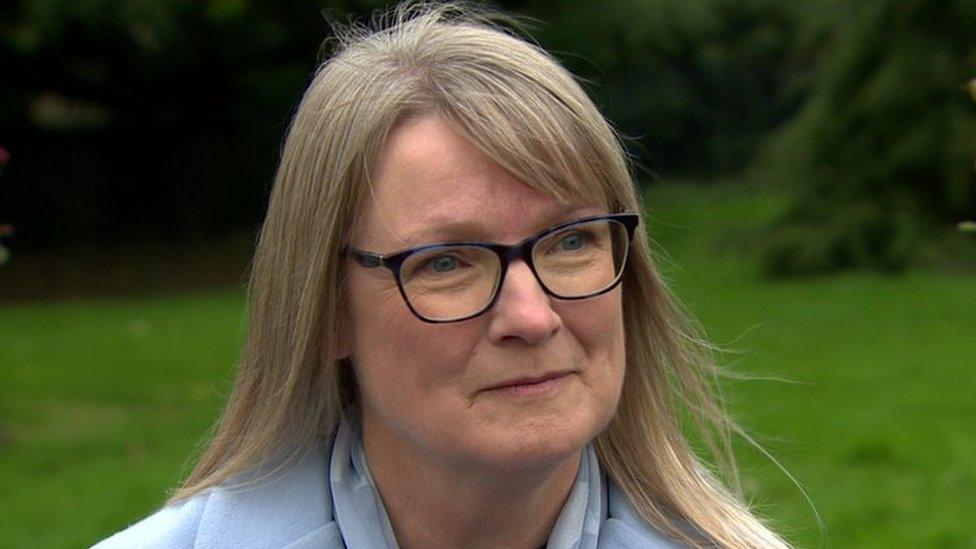Stroke patient thought symptoms were the menopause
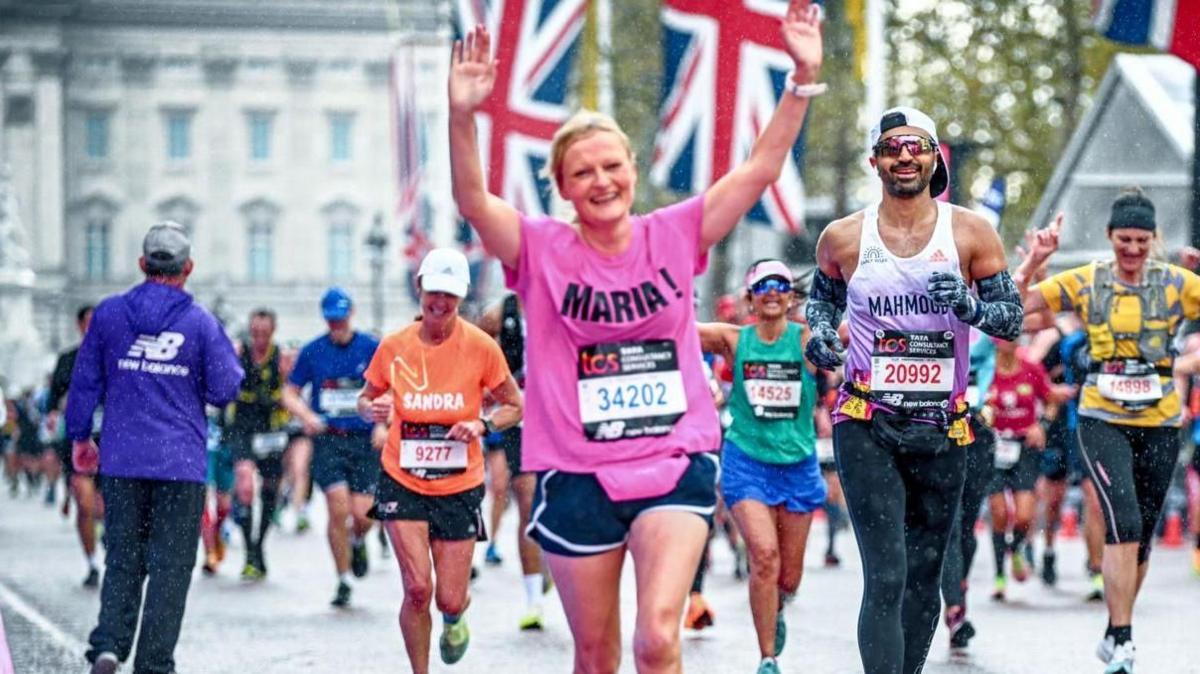
Maria Mulgrew was a keen runner and was training for a marathon when she became ill
- Published
Maria Mulgrew was aware she had reached menopausal age but still something was not quite right.
"I felt anxious in crowds, exhausted and my blood pressure was slightly raised but there was something else," she told BBC News NI.
"I felt I was always on the cusp of something about to happen, I just knew there was something going on in my brain."
Maria, who was 53 when symptoms began, said this period of her life was worrying, but almost a year later she discovered her symptoms were not menopause-related. Instead she had suffered a stroke.
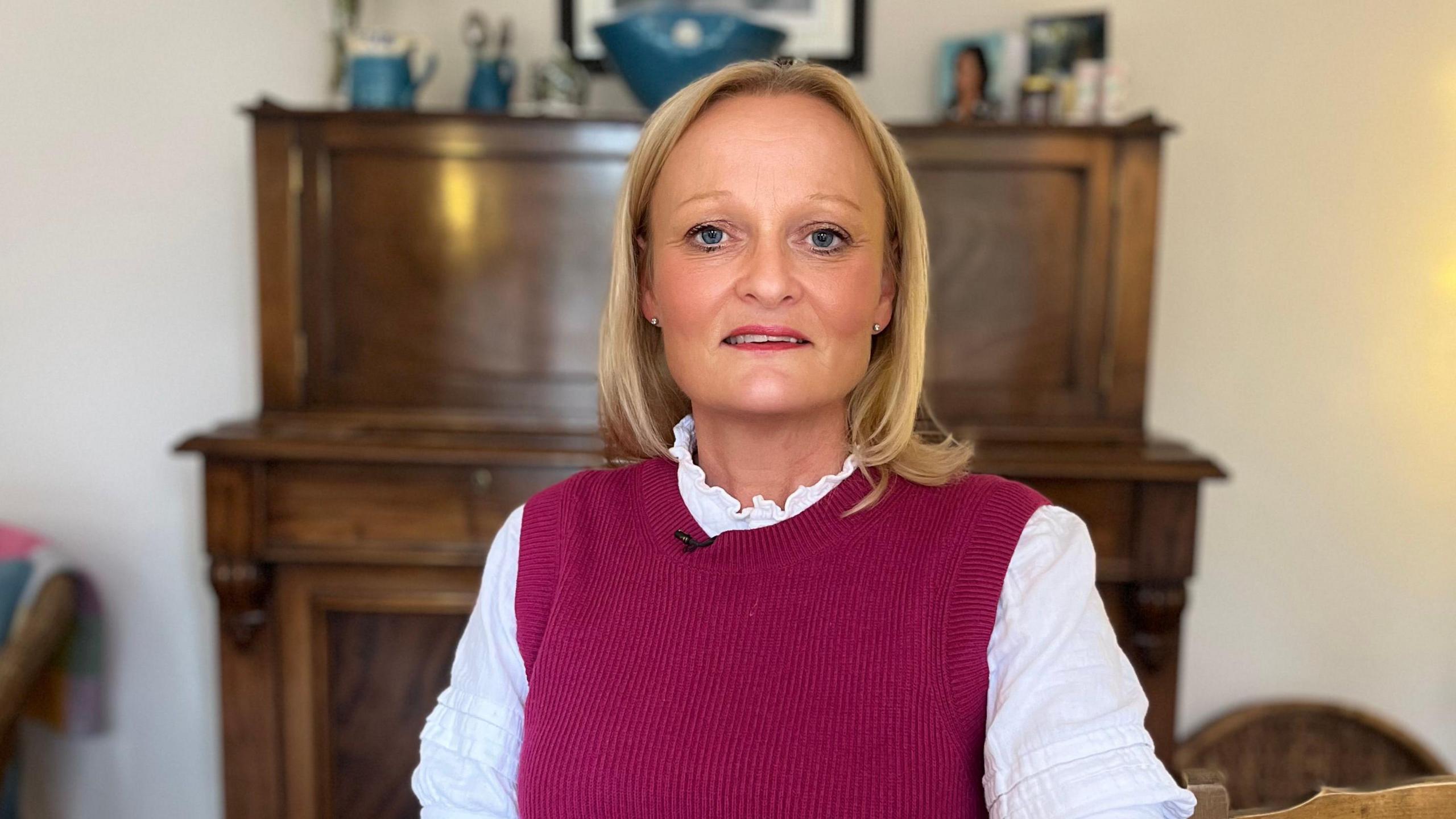
Maria urged middle-aged women to seek answers if they were not satisfied with a diagnosis
"While everyone was suggesting menopause including myself, I just couldn't accept that was the reason I was feeling so poorly," she said.
Clutching at straws, Maria, who is from Belfast, attended menopause conferences, read books and watched programmes about women's health but her questions were not answered.
She said she was speaking out to warn women not to assume their symptoms were all down to a change in hormones, advising them that when things do not feel right they should push for answers and see their GP.
“My message to women is if you are experiencing any new symptoms, see your doctor and don’t just assume it is menopause," she said.
"Secondly don’t be the hero – ask for help, talk to your family, your employer. There is support out there."
What is the menopause and what are the signs?
- Published7 November 2024
What you need to know about Hormone replacement therapy (HRT)
- Published7 November 2024
Regular falls
It started in January 2022, when Maria's marathon training was well under way.
But she was falling regularly and her knees were cut and bruised.
Everything was pointing towards reaching "that stage in life" but the dizziness, involuntary eye movements - especially at the computer screen - and problems with balance were symptoms she knew were not normal.
"There were no particular red flags as I was running regularly, I wasn't carrying any extra weight," she said.
"I ate healthily but I knew something was wrong, and I contacted my GP."
Maria said they discussed menopause and starting hormone replacement therapy (HRT) but that treatment was delayed until other tests, including for vertigo, could be carried out.
Maria said in hindsight she was relieved HRT was not prescribed, as it may not have helped her condition.
Maria's condition escalated 12 months later when she blacked out on holiday.
She said concern grew when she realised her symptoms were not unlike those experienced by her late father before he died from a brain tumour.
While an magnetic resonance imaging (MRI) scan ruled out the possibility that Maria had a brain tumour, a neurologist diagnosed her as having suffered a small cerebellar stroke.
"Looking back over the course of 12 months there were lots of tiny incidents. The most significant was returning from a Bruce Springsteen concert and for a short time I had a sensation on one side of my face", Maria recalled.
"It didn’t last and I didn’t do anything about it – I should have."
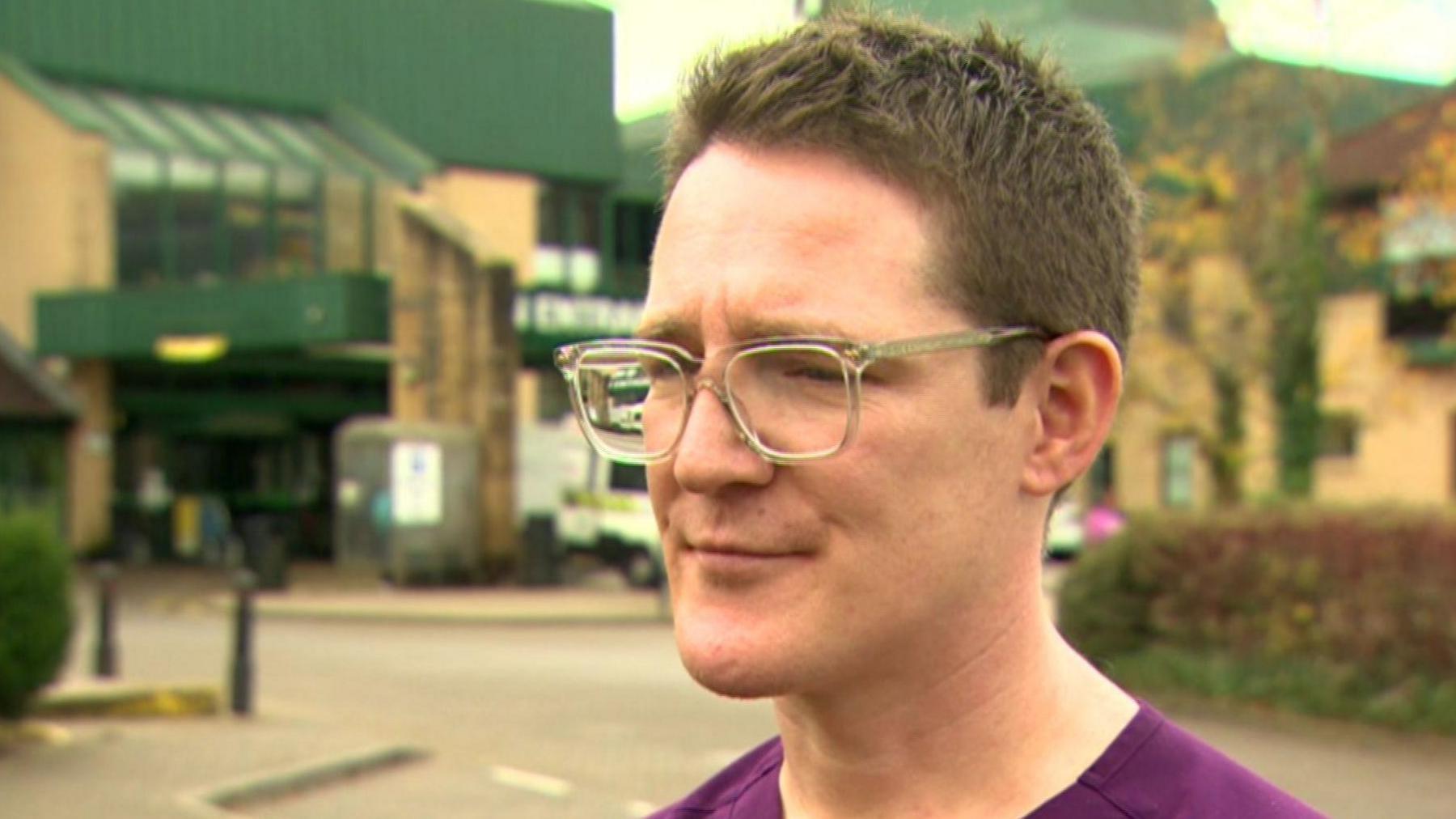
Dr Charlie Beattie advises women to seek further help when menopause symptoms do not improve with treatment including HRT
Consultant gynaecologist Dr Charlie Beattie, who has a specialist knowledge in menopause, said such cases were rare and there were ways of ruling out more sinister conditions such as dementia and brain injury.
He said brain fog was one of the most common symptoms among women who attended the Northern Health Trust's menopause clinics.
He said it could cause a lot of concern, but the important difference was differentiating between symptoms such as forgetting where you put your keys or leaving your purse in the fridge with more serious acts such as falling over or being unable to fasten buttons.
“Forgetting how to button your blouse or start the car would cause us a lot more concern than a woman who forgets a child’s birthday event or misplaces things – that is more common with women who are experiencing menopause,” Dr Beattie said.
According to Dr Beattie there was a crossover between the long list of menopause symptoms and other conditions, and that can present some problems for clinicians.
“The difference is when they start to become very vague and they don’t improve with the likes of HRT," he said.
"Then you have to stop and think, is there something else going on?”
He said it was important the conversation around menopause continued, but added that when there were ongoing issues, the conversation had to turn to medics and professional help should be sought.
Medics have been unable to tell Maria when she suffered her stroke but that it was likely to have been building over some time, hence the little “incidents” she was experiencing.
She has been told that she has made a full clinical recovery and being already fit and running regularly has helped that process.
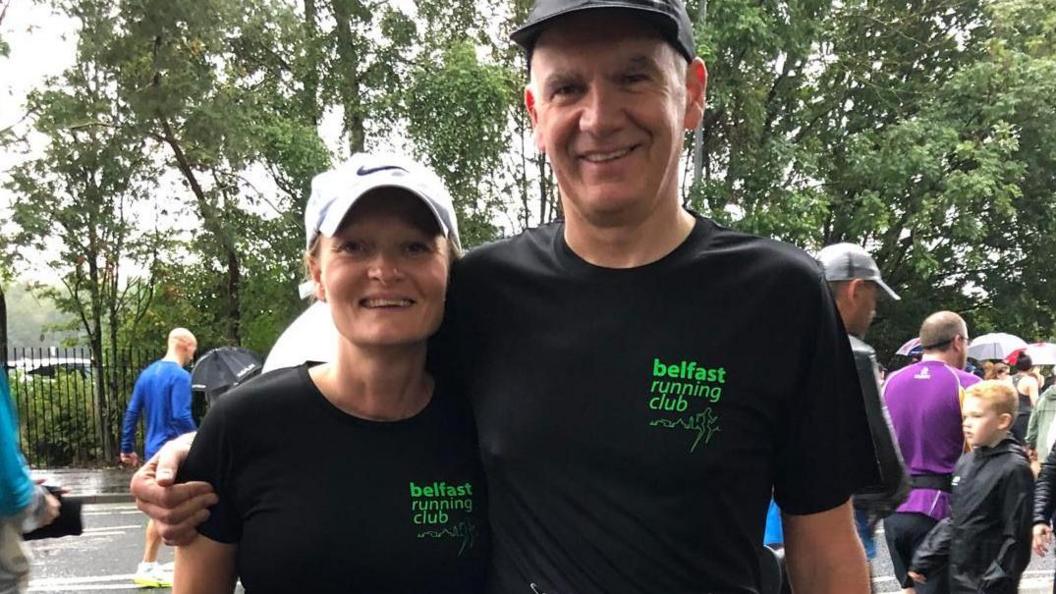
Maria with her husband Peter, who is also a member of Belfast Running Club
World Menopause Day
Maria is speaking out ahead of World Menopause Day on 18 October.
This year the theme is HRT and for women being able to access evidence-based treatment options that optimise mid-life women's health and promote best practice in women's health care.
Maria is among the 51% of the population who are female, working and at the natural menopausal stage of life.
She said her employer had supported her and there was a menopause policy in her workplace.
She said like most women her age, she was familiar with the symptoms and regularly talked about it with her friends.
- Published15 May 2024
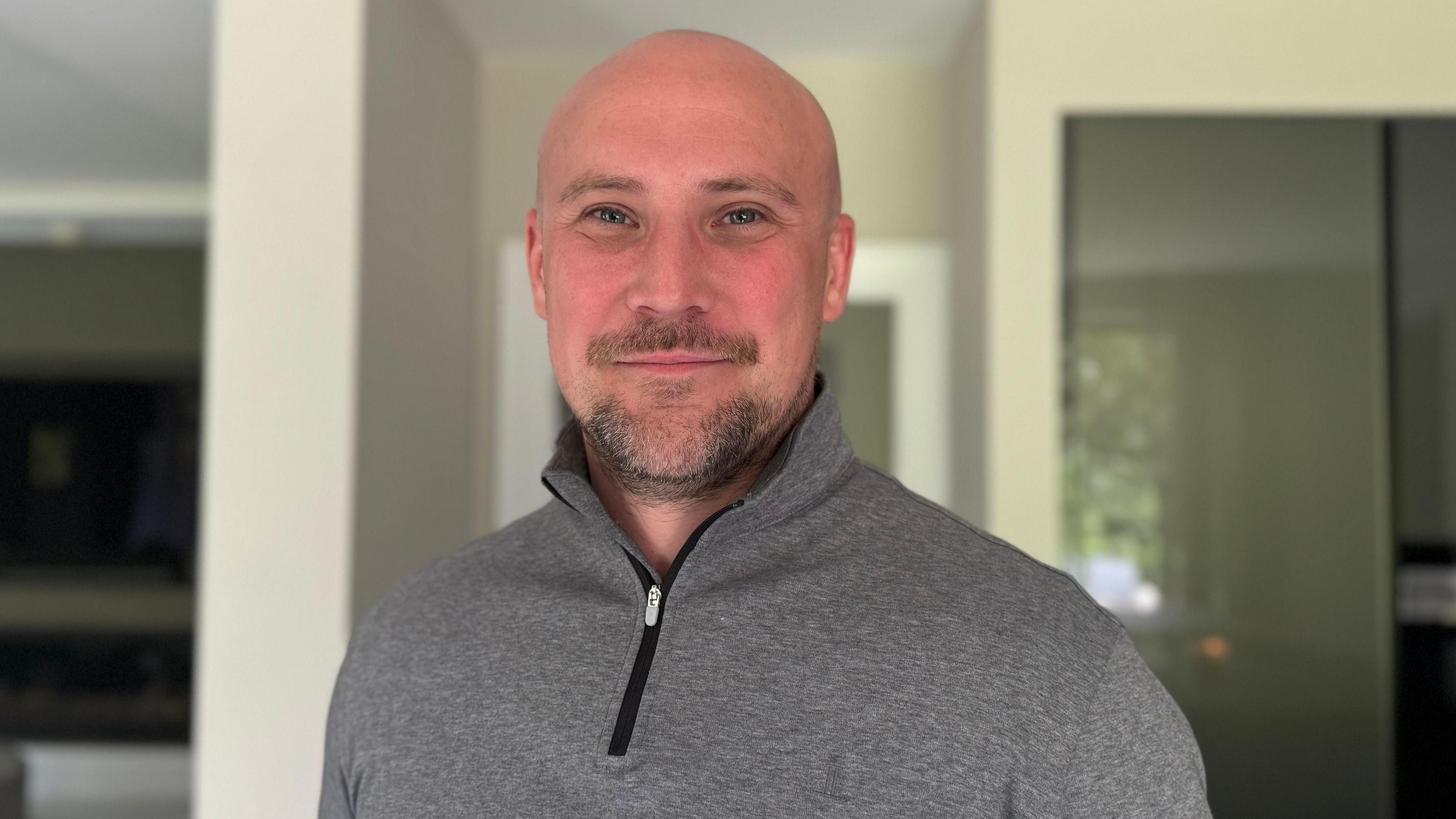
- Published17 October 2023
